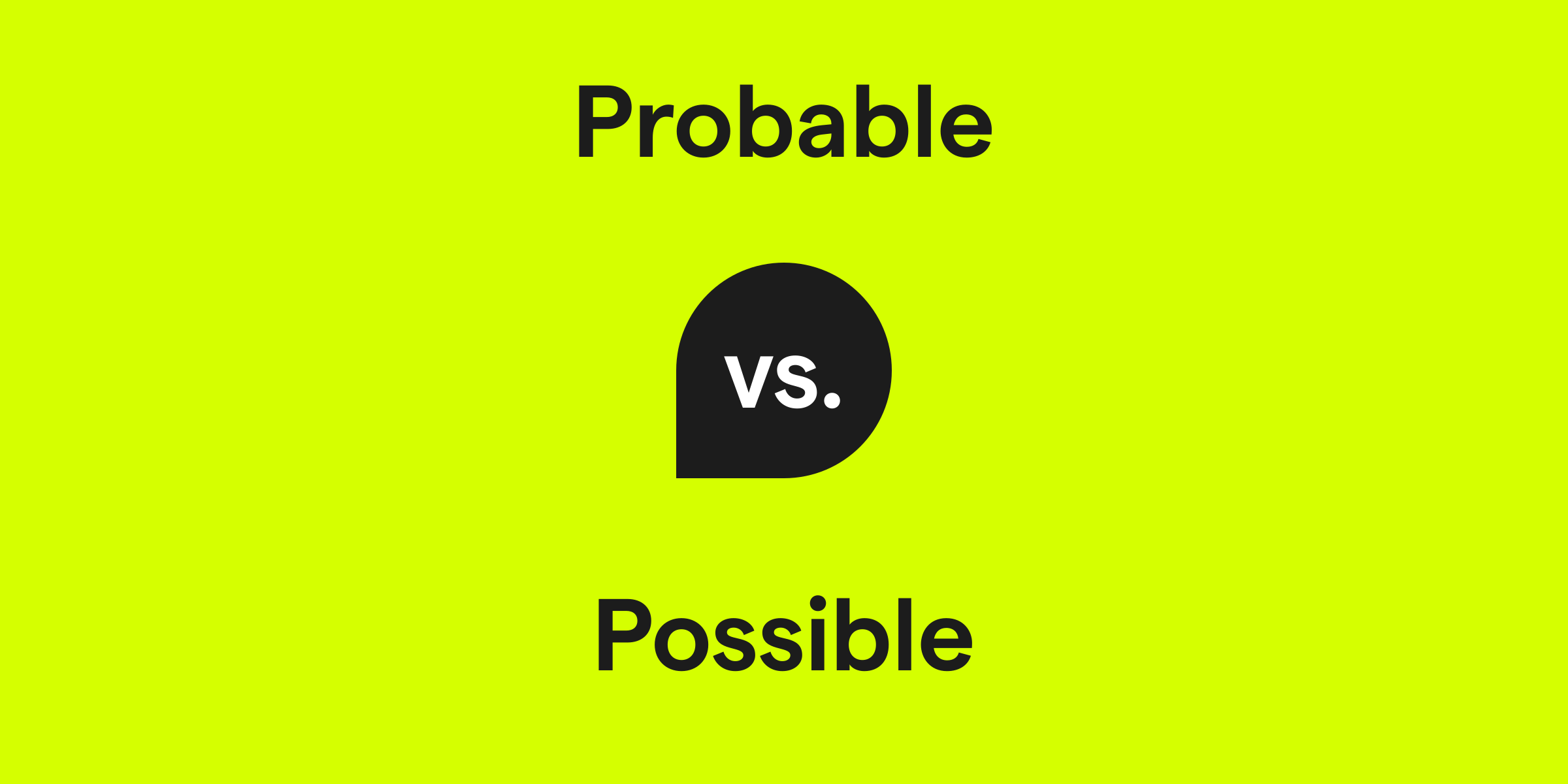Probable vs. Possible: What's the Difference?
Understanding the distinction between probable and possible is essential for accurately conveying the likelihood of events. Probable refers to something that is likely to happen or to be true, indicating a higher degree of likelihood based on evidence or reasoning. On the other hand, possible describes something that can happen or be true but does not necessarily indicate the likelihood; it simply means the outcome or circumstance is not ruled out.

How do you use the word probable in a sentence?
The word probable is used when the chances of an occurrence are high. It is commonly utilized in situations where past data, current evidence, or logical reasoning strongly support the outcome being discussed. To use probable in a sentence, consider the context in which an event is expected to happen, and if it's well-supported, probable is your word of choice.
Examples of probable in a sentence
- Given the dark clouds and weather forecast, it's probable that it will rain later today.
- Based on her exemplary performance throughout the year, her promotion seems highly probable.
- With the team's lead and only a few minutes remaining, it is probable that they will win the match.
How do you use the word possible in a sentence?
The word possible should be chosen when an event is capable of happening, though the likelihood isn't necessarily high. It is often used when there are multiple outcomes and no strong indication towards any specific one. In conversation or writing, use possible to acknowledge the potential of something without committing to a probability.
Examples of possible in a sentence
- It's possible to reach the summit by noon if we maintain a steady pace.
- While a breakthrough is not guaranteed, it is now possible with the latest research.
- There are possible side effects with this medication, though they are rare.
Probable and possible definition, parts of speech, and pronunciation
Probable definition:
Probable is an adjective defining something that is supported by evidence or reasoning to be likely true or expected to occur.
Probable parts of speech:
Probable pronunciation:
Probable is pronounced as /ˈprɑː.bə.bl̩/, with emphasis on the first syllable.
Possible definition:
Possible is an adjective meaning that something may happen or be true, without implying any estimation of likelihood.
Possible parts of speech:
Possible pronunciation:
Possible is pronounced as /ˈpɑː.sə.bl̩/, highlighting the first syllable.
Probable is an adjective defining something that is supported by evidence or reasoning to be likely true or expected to occur.
Probable parts of speech:
- As an adjective: The probable outcome of the game excited the fans.
Probable pronunciation:
Probable is pronounced as /ˈprɑː.bə.bl̩/, with emphasis on the first syllable.
Possible definition:
Possible is an adjective meaning that something may happen or be true, without implying any estimation of likelihood.
Possible parts of speech:
- As an adjective: It's possible that she will arrive early to the meeting.
Possible pronunciation:
Possible is pronounced as /ˈpɑː.sə.bl̩/, highlighting the first syllable.
Probable vs. Possible in a nutshell
The main difference between probable and possible lies in the degree of likelihood. Probable implies there is a good chance something will occur, often backed by evidence or logical reasoning. Possible, however, suggests that an event could theoretically happen, but does not assess its probability. Choosing between probable and possible depends on whether you wish to express a strong or a mere possibility of occurrence.
Get AI Writing Assistance Wherever You Type
Make sure your vocabulary is on point and every punctuation mark is in the right place, no matter where you’re working. Grammarly works across more than 1 million websites and apps so you can improve your writing without copying, pasting, or breaking focus.

More Commonly Confused Words
Interest piqued? Pore (not pour) over other commonly confused words to help your writing reach peak (not peek) performance.